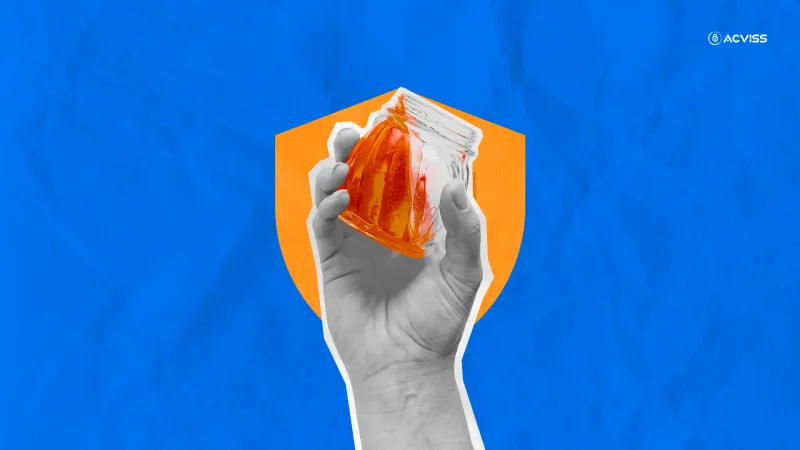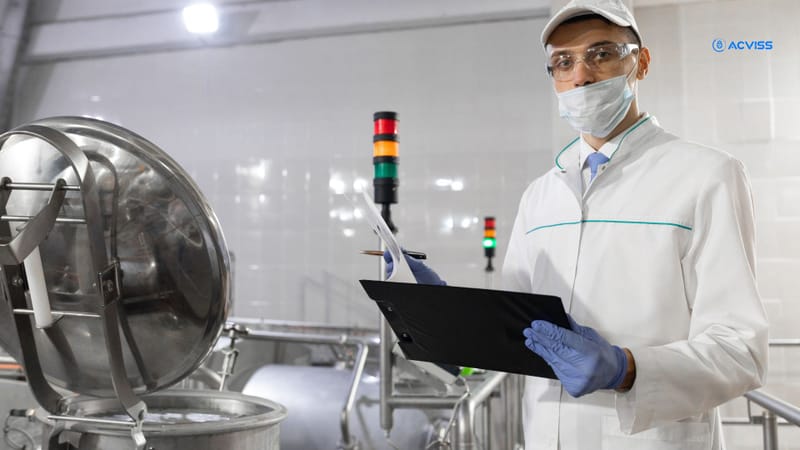Strategies and Technologies to Combat Adulterated Foods and Protect Your Brand

Adulteration of food is a critical issue that poses significant risks to public health and undermines consumer trust. For companies in the FMCG (Fast-Moving Consumer Goods) sector, ensuring food traceability is paramount to combat adulteration and maintain product integrity.
This blog will explore effective strategies and cutting-edge technologies to fight against adulterated foods and enhance traceability throughout the supply chain.
Importance of Food Traceability
- Consumer Safety: Ensuring that food products are safe and free from adulteration protects consumers from potential health hazards.
- Regulatory Compliance: Adhering to food traceability regulations helps companies avoid legal repercussions and maintain market access.
- Brand Reputation: Transparent and traceable supply chains build consumer trust and strengthen brand reputation.
Key Strategies for Combating Adulterated Foods
Implementing Robust Traceability Systems
- End-to-End Tracking: Establish comprehensive traceability from the source of raw materials to the final product. This helps in identifying and addressing any adulteration points within the supply chain.
- Batch and Lot Tracking: Utilize batch and lot numbers for precise tracking of food products. This allows for quick identification and isolation of adulterated batches.
Leveraging Advanced Barcoding and Labelling
- GS1 Barcodes: Standardized GS1 barcodes ensure uniformity and accuracy in product identification, enhancing traceability across global supply chains.
- QR Codes and Data Matrix Labels: These provide detailed product information accessible by scanning with a smartphone, promoting transparency and traceability.
Utilizing Blockchain Technology
- Immutable Records: Blockchain offers a secure and immutable ledger for recording every transaction and movement within the supply chain. This prevents tampering and ensures the integrity of traceability data.
- Smart Contracts: Automate compliance and quality checks with smart contracts, reducing the risk of human error and increasing operational efficiency.
Adopting IoT and Smart Sensors
- Real-Time Monitoring: IoT devices equipped with smart sensors can monitor product conditions such as temperature and humidity in real time, ensuring that food products remain safe and uncontaminated.
- Automated Alerts: IoT solutions can send automated alerts if any deviations from safety standards are detected, allowing for immediate corrective actions.
Employing AI and Machine Learning
- Predictive Analytics: AI and machine learning can analyse patterns and predict potential adulteration risks, enabling proactive measures.
- Quality Control: AI-powered quality control systems can detect anomalies and contaminants in food products more accurately than traditional methods.
Conducting Regular Audits and Inspections
- Supplier Audits: Regular audits of suppliers ensure they adhere to stringent safety and quality standards, reducing the risk of adulteration.
- Internal Inspections: Frequent internal inspections and quality checks help in maintaining high standards of product integrity.

Technologies Enhancing Food Traceability
RFID (Radio Frequency Identification)
- Automated Tracking: RFID tags facilitate automated tracking of food products throughout the supply chain, improving traceability and reducing the risk of adulteration.
- Inventory Management: RFID technology provides real-time inventory data, helping to manage stock levels and trace product movements efficiently.
Blockchain Solutions
- Transparent Supply Chains: Blockchain ensures that all stakeholders have access to accurate and transparent traceability data, promoting accountability and trust.
- Traceability Platforms: Blockchain-based traceability platforms offer end-to-end visibility, making it easier to identify and address adulteration points.
Smart Packaging
- Tamper-Evident Packaging: Smart packaging solutions with tamper-evident features enhance product security and traceability.
- Interactive Labels: Labels with embedded sensors provide real-time data on product conditions and traceability information.
Read more on Smart Product Tracking Strategies for the Modern Business
Case Studies and Industry Applications
Dairy Industry
- The adoption of blockchain and IoT in the dairy industry has improved traceability and reduced instances of milk adulteration.
Meat Industry
- Advanced barcoding and RFID technology have enhanced traceability in the meat industry, ensuring product safety and compliance.
Read more on Securing the Dairy Supply Chain: The Impact of Traceability Solutions
Conclusion
Combating adulterated foods is essential for protecting public health and maintaining consumer trust. By implementing robust traceability systems and leveraging advanced technologies like blockchain, IoT, AI, and RFID, businesses in the FMCG sector can enhance food traceability and ensure product safety.
Adopting these strategies will help in complying with regulations, safeguarding brand reputation, and promoting transparency throughout the supply chain.
Still wondering where to start?
Get in touch with us to secure your brand across the globe with advanced anti-counterfeiting and supply chain security solutions.
Protecting over 2 billion products and 80+ brands, Acviss is a pioneer in the brand protection industry, enhancing your reputation and boosting your growth.
FAQs
What is food adulteration?
Food adulteration refers to the deliberate addition of inferior or harmful substances to food products, which can compromise quality and safety.
Why is traceability important in combating food adulteration?
Traceability allows for the precise tracking of food products through the supply chain, helping to identify and address points of adulteration quickly and effectively.
How does blockchain technology enhance food traceability?
Blockchain provides a secure and immutable ledger for recording every transaction and movement within the supply chain, ensuring data integrity and transparency.
What are the benefits of using IoT in food traceability?
IoT devices equipped with smart sensors enable real-time monitoring of product conditions, ensuring food safety and quality by providing immediate alerts on any deviations from standards.
How can AI and machine learning help in preventing food adulteration?
AI and machine learning can analyse patterns and predict potential adulteration risks, enabling proactive measures to ensure product safety and quality.
What role do RFID tags play in food traceability?
RFID tags facilitate automated tracking of food products throughout the supply chain, improving traceability, reducing the risk of adulteration, and enhancing inventory management.
How can companies ensure compliance with food traceability regulations?
Companies can ensure compliance by implementing robust traceability systems, conducting regular audits and inspections, and leveraging technologies like blockchain, IoT, and AI to maintain high standards of product integrity.
